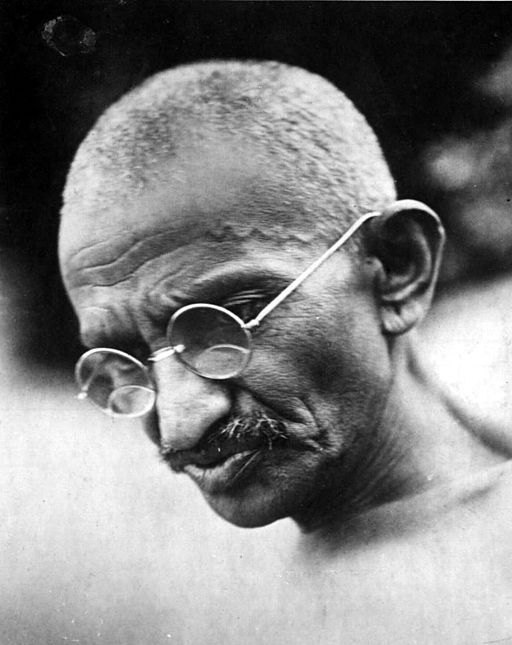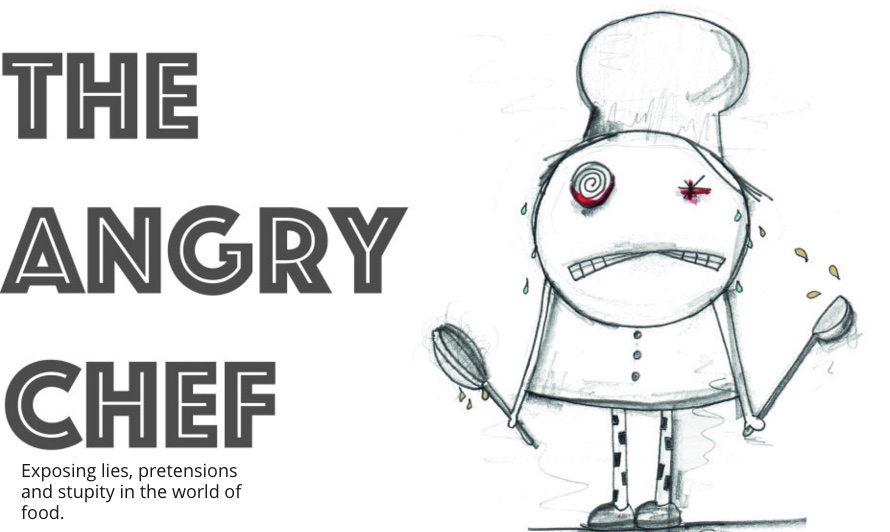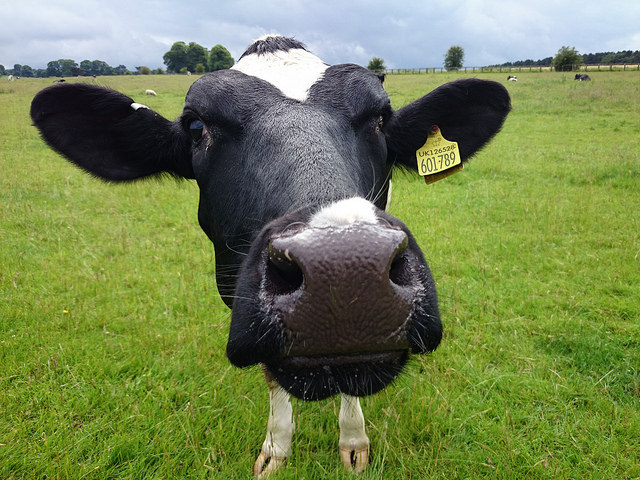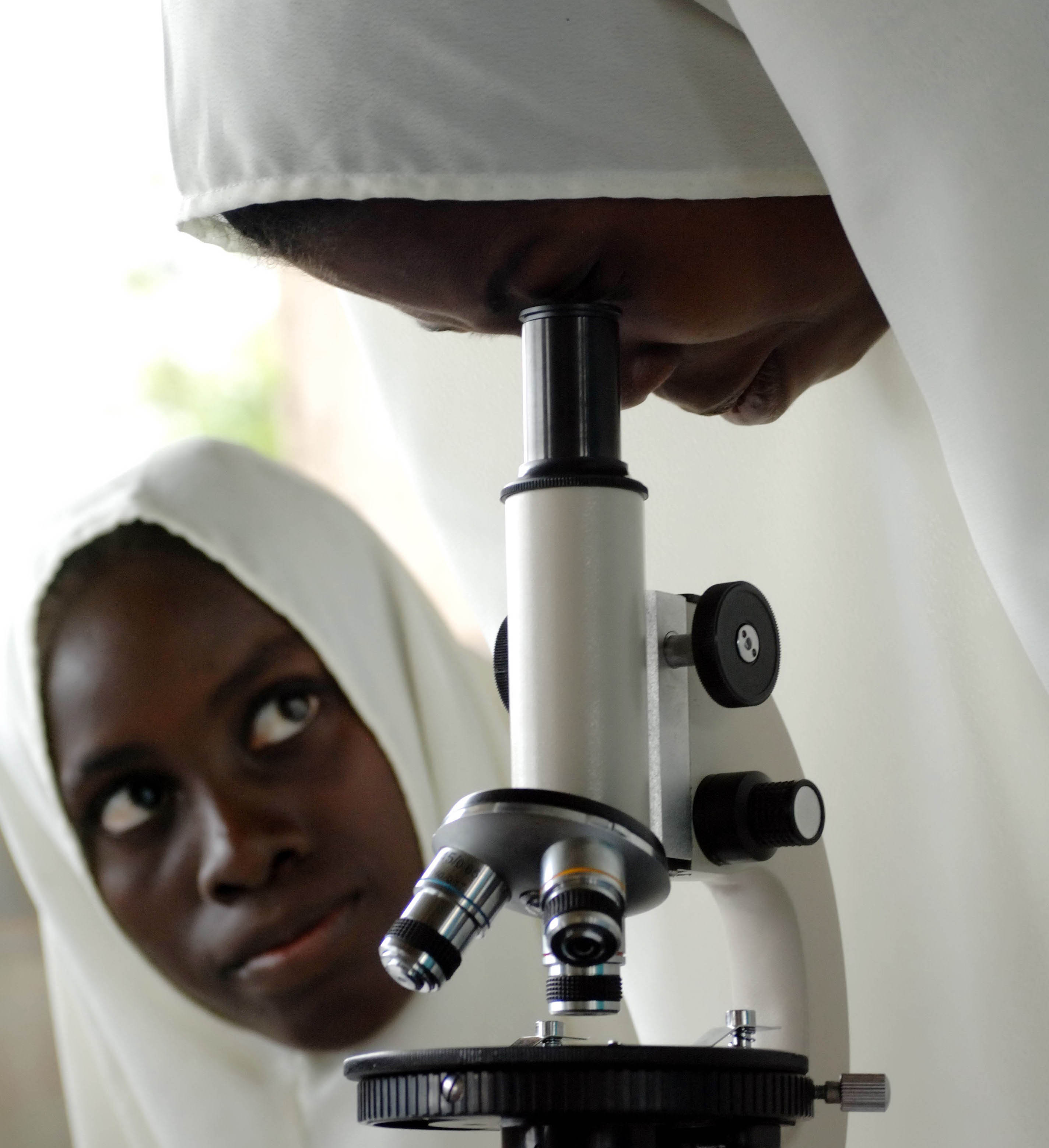 About a month ago I attended the last day of the 2015 European Skeptics Congress in London. This was my first public event as a skeptical thinker. I was both nervous and excited to meet Edzard Ernst, the scientist and medical doctor who catalyzed my departure out of the naturopathic profession. (He is just as kind and awesome as I imagined. I also got to meet Simon Singh as a pleasant surprise.)
About a month ago I attended the last day of the 2015 European Skeptics Congress in London. This was my first public event as a skeptical thinker. I was both nervous and excited to meet Edzard Ernst, the scientist and medical doctor who catalyzed my departure out of the naturopathic profession. (He is just as kind and awesome as I imagined. I also got to meet Simon Singh as a pleasant surprise.)
The last event of the congress included an open discussion about skepticism in medicine. The conversation had a few main themes, but for me, the dominating takeaway theme of the discussion was “education about science and medicine is good for patients and for society.” Everyone in the room agreed that educating patients on the potential harms of alternative medicine is important. Furthermore, many believed that education is the most important factor for change.
I disagree. Education is just one of five key factors necessary for change.
When it comes to beliefs about alternative medicine, highlighting fallacies through education most often does not change minds. In my experience, presenting factual information often has the opposite effect on your audience: people tend to cling to their beliefs more strongly. And, they will stop inviting conversations about alternative medicine by withholding information and altering medical histories in order to avoid lectures about the dangers of alternative medicine. As a patient, I became a skilled expert at telling physicians only what I thought they needed to know, no more, no less. As a doctor, I became the one with whom your patient was cheating. I was the “other” primary care doctor you did not know about.
I left the skeptic’s congress mulling over the role of education in changing beliefs, especially when it comes to ideologies like homeopathy, naturopathy, and faith healing.
Is education the key to change?
Education is important for individuals as well as for society as a whole. On a personal level, education is correlated with higher incomes, more meaningful careers, and according to some sources, happiness and higher self-esteem.
Education is also important for the overall well-being of a society. According to the Global Partnership for Education, the answers for decreasing poverty, making society healthier, increasing economic growth, and creating other positive changes within society seem to be linked to education.
But education does not always have the effect one would expect.
The backfire effect is the phenomenon that occurs when a person who is presented with information and evidence against his or her beliefs, rejects the facts and adheres to their (erroneous) position more strongly. Since starting NaturopathicDiaries.com, I’ve noticed that the backfire effects is often coupled with ad hominem attacks.
Ad hominems and other ineffective arguments
There is a long list of ineffective and silly arguments that are commonly used to support alternative medicine. I did not realize how ubiquitous these arguments were until I read The Critical Thinker’s Dictionary by Robert Todd Carroll. Pointing out these logical fallacies will probably not help you change someone’s opinion. But, they are useful to understand nonetheless.
Here is a quick list of worthless arguments that come to mind:
- Antiquity: “It is an old tradition that has been around for thousands of years.”
- Ad hominem: “You obviously failed as a naturopath and are bitter, therefore you are wrong.”
- Appeal to authority: “Dr. Oz swears by this supplement!”
- Appeal to popularity: “Everyone I know takes vitamins!”
- Availability error: the most available rational for something, which is often irrational and wrong
- Tu quo que: “Conventional medicine kills people, too!”
- Special pleading: you have to believe in something in order for it to work.
- No true Scotsman: “Not all naturopaths think vaccines are bad.”
- Ancedotal evidence: My grandpa smoked a pack a day and drank whiskey every night and he lived until he was 102, so don’t believe all the evidence that says smoking and drinking will kill you.
- Straw man argument: misrepresenting your opponents argument or position.
- Middle ground: taking the best of both worlds, “Naturopathy is a blend of age-old healing wisdoms and modern medical science.”
- Magical thinking: the idea the all things are connected in a special way that extends beyond physical and spiritual connections.
A complete list of logical fallacies, with extensive explanations and examples can be found on Carroll’s website, The Skeptic’s Dictionary. (My summarized explanations of these logical fallacies are pulled from here.)
The nastiest of all these logical fallacies, in my opinion, is the ad hominem attack.
Until recently, I correlated ad hominem attacks with intolerance. When someone personally attacked me instead of my position, I assumed that this person could not tolerate my opinions and, therefore, lashed out. I made up stories about these attackers, such as, they have no critical thinking skills, or they do not know what they are talking about. These stories helped me process the attacks and most importantly, these stories helped me not fight back.
And then I read an article on compassion. After a few weeks of mulling over the meaning of compassion, I have come to understand something very important. Ad hominem attacks result from a lack of compassion.
Are we intolerant?
Science communicators are starting to write more about the need for compassion when trying to understand another perspective. Some writers, such as Julie Rehmeyer from Sense About Science, believe that all people speaking out against alternative medicine need to be particularly sensitive to the experiences of the person promoting pseudo-medicine.
I agree that respect, sensitivity, and compassion are beneficial factors in any human interaction. I also believe that when it comes to medicine and patient safety, fixed lines need to be drawn separating what is acceptable and what is not. Sometimes the messages surrounding ethics and standards in medicine are communicated poorly, but when done expertly, and with compassion, they can move mountains.
It is important to note that in my opinion, compassion does not include conceding to a wrong opinion. Trick or Treatment? Alternative Medicine on Trial by Simon Singh and Edzard Ernst is the perfect example of this point.
When I read Trick or Treatment, I was in awe of Singh and Ernst. They succeeded in debunking alternative medicine therapies with science, while simultaneously not berating or belittling the reader for believing in magical medicines. They did not coddle me in order to present the facts. They were clear, concise, and unapologetic about what the science said about alternative medicine. I remember feeling like I was getting the truth about naturopathy, without any of the judgment. In the spirit of Maya Angelou, now that Ernst and Singh helped me know better, I was going to do better.
Change can do us good, if done right
Changing one’s mind, or even one’s entire belief system, is very difficult.
Here is what facilitated my change:
- A terrible experience of witnessing patient harm. Sometimes, sharing stories where people were harmed from inadequate medical care or alternative care can facilitate change.
- Education, but in very small bits. It took me over a month to read Trick or Treatment? Certain chapters were easy to read. But the chapters that challenged the core of my belief system were painful. Often times, I read a page or two, and put the book down, not returning for a week. Education can work, but I think it needs to come in bite-sized pieces. To the physicians who bragged about spending 30 minutes educating a patient about the dangers of naturopathy, I would bet that your patients lie about their use of alternative medicine, just to avoid another 30 minute lecture from you.
- Compassion. For me, compassion does not mean you need to accept another person’s erroneous belief system. It does not even mean you need to validate their opinion. It simply means listening to the other person. You may strongly disagree with a person’s choice to use alternative medicine, but make sure this opinion comes from a place of concern, not judgment. Ernst and Singh presented concern for patient safety, along with a hefty dose of science in Trick or Treatment? I needed their compassionate viewpoint in order to embrace the science.
- Support. Through my blog and social media I have developed a strong support system. Many people who are walking the line between real medicine and its alternatives may not know where to turn, or who to talk to. As a physician, friend, or family member, offering science-based, non-judgmental resources to someone hesitant to trust science-based medicine may be very helpful. Tell them what blogs you like to read, who you trust as experts, and recommend books. You probably do not need to warn people to stay away from getting medical advice from celebrities and Google. They have heard these lectures before. Instead, focus on helpful resources that are also positive. Here is a list of books I found very helpful during my period of change.
- Patience. People digest information at different rates. Try not to rush people through change, even as their concerned physician. As a point of reference, it took me a month to read Trick or Treatment? and almost a year before I started writing about my experiences. No one could have sped this process along. I am thankful for those who let me move at my own pace during this time.
Given my personal experiences as a former naturopath, I have strong opinions about what is real and what is not. My new opinions do not make me bitter, petty, or angry. Strong opinions are not correlated with a lack of compassion. They are a product of passion.
I now think most of my former beliefs as a naturopath were based on false ideas and bad science. This awareness came from self-reflection and time spent trying to understand the world around me and my experiences in it. But most of all, this new awareness came as a result the five key factors listed above.
A naturopathic medicine group recently tweeted to me that they were sad about my attack on naturopathic medicine. They wrote, “Be the change.”
I am.
@NaturoDiaries Dr Hermes it saddens me that you take this view.We're all just trying to make this world a healthier place. #BeTheChange
— Coquina Deger (@ND_Healthcare) October 11, 2015



To be compassionate and nonjudgmental is very difficult. You are correct that we should be that way but I have to admit it is very difficult. I have always felt that the alternative community seems to not have much filter in their accusations but that we on the science based side are supposed to be more subtle. It is not unusual for a chiropractor to scream out that you are poisonong and killing millions of people with your pill pushing and big pharma loving ways. If we turned around and said a similar blasphemous remark about their therapies they go crazy. I have always noted this double standard and being human often have trouble holding back. You are correct though that one is doing no one any favours by being derogatory and insulting in return.
The ironic thing Britt…is that your intelligence and well written articles have actually elevated my opinion for alternative practitioners. I figure there have to be others like you and they are not all buy a degree med school wannabes as I had previous had thought!
Many alt med practitioners are intelligent and personable- But they use these skills to support their world view at all costs- even to the detriment of themselves and their loved ones. They are True Believers who wouldn’t hesitate, for example, to pass over real cancer treatment in favor of well-marketed snake oil.
I do wonder about the ones who believe a lot of it is BS but continue to remain in the profession, as in the previous post entitled the Penitent Naturopath- I wonder how common it is- I talked to an acupuncturist who had many doubts and realized it probably didn’t work for many conditions- but continued to sell it for the conditions he thought it worked for.
Common. I receive many emails from practicing NDs who are “disgusted” with the profession and their education, but need to stay in practice in order to pay off their student loan debt from ND school. Unfortunately, none of the NDs want to write a post for me, unless they do it anonymously. People are afraid of the social fallout.
It is hard not to judge- but think of it this way: If I did not have the opportunity to return to school in Germany for free, I would not have been financially able to change careers. I would have been stuck trying to make a living with my ND degree. Add kids, a spouse, a mortgage, any investment in a practice space… and the decision to walk away from your career becomes very complicated. I suspect that if we were able to help NDs get their loans forgiven, many more would walk away from the profession.
Well, thanks. I know MANY intelligent naturopaths. We are not stupid, just misinformed. We have been misled by those in charge of naturopathic education and the leaders in the profession. I think it is important to approach conversations with naturopaths with this background knowledge. In my opinion, criticizing/ scrutinizing the ND education system, the accreditation organization (CNME), and the naturopaths who disseminate false information for political advancement is the most effective way to elicit change.
“But education does not always have the effect one would expect.
The backfire effect is the phenomenon that occurs when a person who is presented with information and evidence against his or her beliefs, rejects the facts and adheres to their (erroneous) position more strongly”
Hi Brent, I agree. But, how do we let people discover their errors in thinking by themselves when it comes to alternative medicine, if their lives or safety (or pocketbook) is at risk? When I think someone is at risk of being harmed, I intervene. I am often ineffective, but I find it difficult to not explain the risks of using alternative medicine in these situations. How do we let people discover the answers for themselves in the face of perception bias? People tend to see what they already believe is true. I’d love any resources you may have.
Yes generally I don’t speak up about relatively harmless essential oils and supplements, but will say something about caustic treatments like black salve. It’s very difficult.
I think one way is to show people how easy it is to be psychologically manipulated. Something that’s been very eye opening for me was binge watching a lot of videos from magicians like Derren Brown- I had a particular revelation about correlation and causation after watching the 6th episode of the 2nd season of Trick or Treat
https://www.youtube.com/watch?v=IDi2NlsA4nI
Hi Britt, yeah, not exactly easy. Unfortunately it starts early in life which is part of the reason I like working with children. I think a lot of it also deals with how you explain something to someone. For instance, find points of agreement first (i.e. I think it is pretty awesome people get a ton of relief from something like acupuncture.) For instance, I know people and clients who have resolved years of intense back pain by seeing an acupuncturist. I resolved it in a very different way and just share my experiences with them and try to find common ground first.
Definitly not easy but it’s a start.
PS – love you articles. I was seriously considering going to Bastyr about 5-6 yrs ago for naturopathic medicine. I live 10 min away and researched the heck out of the school. So glad I didn’t go through with it. Everything you have said pretty much echoes my sentiments after doing a little research. Hopefully your writings find a wider audience. I bet Bastyr just loves you 🙂
If I think someone is capable of having a rational conversation I simply ask them Why they believe what they do. Most don’t answer but sometimes people do and a discussion can commence where they provide their reasons for belief and I can address whether or not they are good reasons for belief, without directly telling them that they are wrong (after all, I could be wrong). I try to promote skepticism more than any specific viewpoint but it’s often difficult
Great post. I’ve mused a little upon your dialog with ND_Healthcare on today’s Naturocrit post. It catalyzed me to I look at their ‘.com’ pages’ claims of being categorically science while doing homeopathy and positing life energies. I put it there because then only I have to take the heat for my verbiage. As an educator who teaches medical law, ethics, and science, which I think is the most wonderful of intersections, I find I swing like a pendulum between realism and idealism, aka acceptance and hope for improvement. I do write about my dissatisfaction with the naturopathy entry in Trick or Treatment. The book overall is phenomenal, by the way, but I’ve never been happy with their version of naturopathy.
Perhaps only I’d write, overall, concerning naturopathy sCAM:
“obviously, ‘dogmatic archaic conservatism / sectarian pseudomedical obligations and preferences’ unvetted carelessness is masquerading as rigorously vetted ‘scientific changing progressiveness’.”
Am I compassionate? To my students, yes. As a person of the far left politically, yes.
But the Connecticut NDs call me “an assassin” and “deranged.”
And I am delighted.
-r.c.
I will concede that education is key in certain sectors, such as the serious problem we have with medical and nursing schools hosting pro-CAM departments.
And much as I enjoy your blog — one of the most valuable in my estimation — blogging seems to be treated as the most effective way to fight CAM. This doesn’t take into account that the best of blogging will get buried in the daily barrage of Internet info, and blogs largely addresses the science-minded anyway.
One serious problem area is state and national government giving their stamp of approval to CAM practices/practitioners, aiding them in going mainstream. Granted it is hard to lobby against pro-CAM bill. Our ranks are largely unwilling to speak to legislators or testify at hearings. They need to know that this is vital, and that we can’t rely on medical professionals groups to hold the line, as they are often apt to throw away opposition to CAM issues in order to curry favor on other issues. Legislation is the arena where CAMsters and supplement companies appear to be working the hardest. We should, too. It is hard to effectively address CAM as potentially harmful with neighbors, friends, and coworkers when it is the law of the land…
Let’s look at modern medicine: heart disease- epidemic and incurable, cancer- epidemic and incurable( and please don’t even mention the ridiculous 5 year survival nonsense), diabetes, auto-immune, obesity, arthritis, osteoporosis, dementia,depression, ADDH etc etc epidemic and incurable and the CAUSES are NEVER addressed. But wait, there’s more: 2 major medical journals report massive scientific fraud in peer-reviewed published studies ( Lancet & NE Journal). I’ll happily leave all of you to this kind of quackery but I’ll gladly accept first aid & emergency room treatment if ever needed! Good luck!
The Highly Proud & Successful Naturopath with 35 years experience.
What does naturopathy offer to treat these conditions? Maybe you can show us published evidence of your record on curing cancer.
Scientific misconduct is awful. Fortunately, science has mechanisms to detect it and put an end to those breaking the rules.
Obviously there are no mechanisms in place. These are peer-reviewed studies and the quoted fraudulent rate was approximately 40% of submitted studies for Lancet and 100% for the New England Journal. But remember, it’s not just fraudulent studies. There are treatment protocols being used around the world based on these pseudo- scientific studies, causing untold harm and suffering.
As to what naturopathy has to offer? Everything! However I won’t even try to explain on a blog site such as this. 90%+ of my clients come to me for two main reasons: 1. Medical treatment failed, 2. Medical treatment seriously harmed/damaged them. Have you noticed that doctors no longer sign the Hippocratic Oath? One of the tenets is that a doctor will offer no treatment or substance that causes harm to the patient. That would rule out just about everything. The system needs an independent review and overhaul but that will never happen due to the huge amounts of money involved. Of course there are charlatans in natural therapies, medicine, science, politics, religion, law enforcement etc. No system is perfect including ours but we are not killing hundreds of thousands of patients every year.
I see that my last reply was not posted. Too much truth & logic? Let’s give it 1 more try! I’ll leave you all to your closed-minded delusions of $cience and wish you all health, peace & happiness. I’m way too busy helping thousands of people who were damaged by modern ” medicine” to spend my time here! One last point: in 1998 the Australian Federal Government commissioned a study. After 1 year the results were published on their website as well as in various newspapers.The results? Modern medicine legally killed 12,500 people, seriously/permanently damaged 60,000, moderately harmed 80,000 in the space of ONE YEAR! Total medical mayhem and carnage which gets accepted as ” business as usual.” In that same time period, there was not 1 reported case of death or damage by a natural health practitioner or product. Rationalize that away! Absolute insanity. ” Gray are all the theories but green is the Tree of Life.” Goethe
Nicholas, you claimed you wanted to talk about modern medicine but instead you’ve brought up chronic diseases and cancers. Surely you’re not try8ing to argue that modern medicine has failed simply because we can’t yet cure every disease or condition?
You also suggest that modern medicine doesn’t address causse–can you offer a rational argument supporting this claim?
Consider antibiotics–how does eliminating the pathogens that cause infection not qualifying as treating the cause of an illness?
Consider vaccines–how does preventing viral infections not count as treating the cause of viral infections?
Your comment was stuck in moderation. If you register through the Disqus system, your comments will post immediately.
Bummer.
There are problems with medicine, but that doesn’t mean pseudoscience works. Medicine is risky, but it also has a proven track record of achievement.
“As to what naturopathy has to offer? Everything! ”
Nicholas, what treatment interventions does naturopathy offer for non-self limiting illnesses and injuries that are not also integral parts of standard of care science based medicine, and where can I find publications presenting the results of appropriately blinded and controlled clinical studies demonstrating these interventions are actually safe and effective as treatments for these indications?
:
I like how the moment there’s a delay in your posts going public you immediately latch onto the “evil-censorship of my truth” angle.
You may wish to re-read this entire article from scratch and take a long hard look in the mirror.